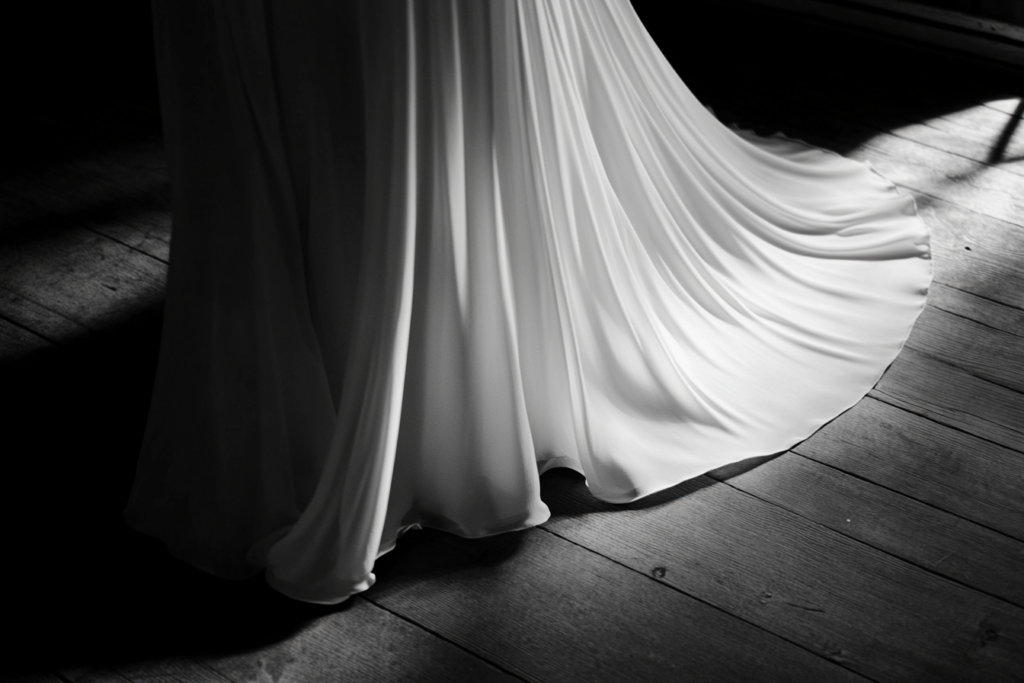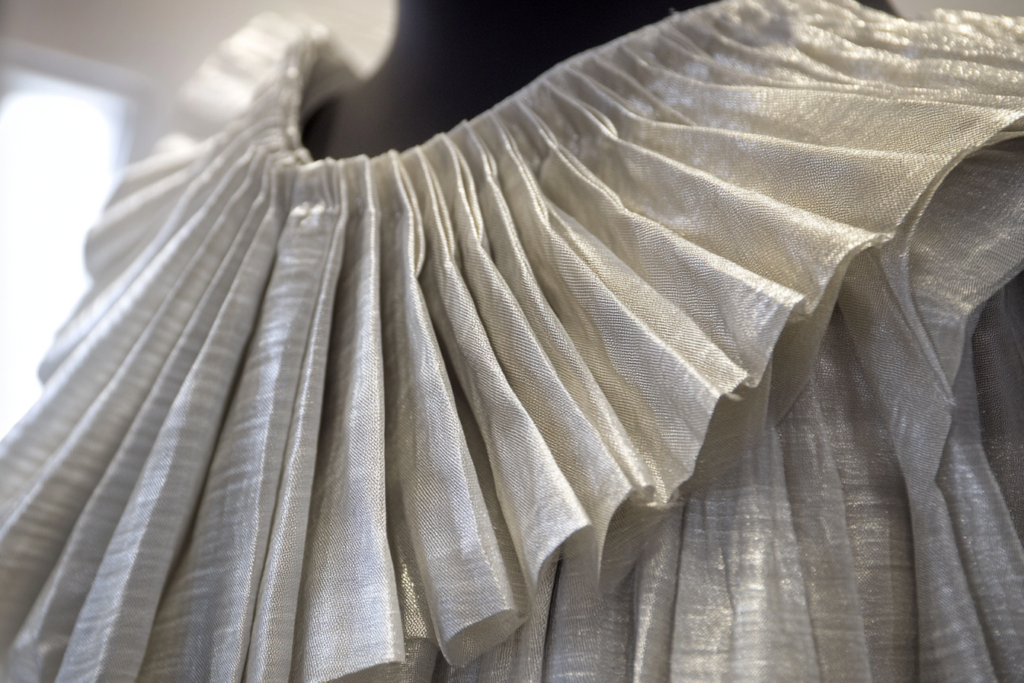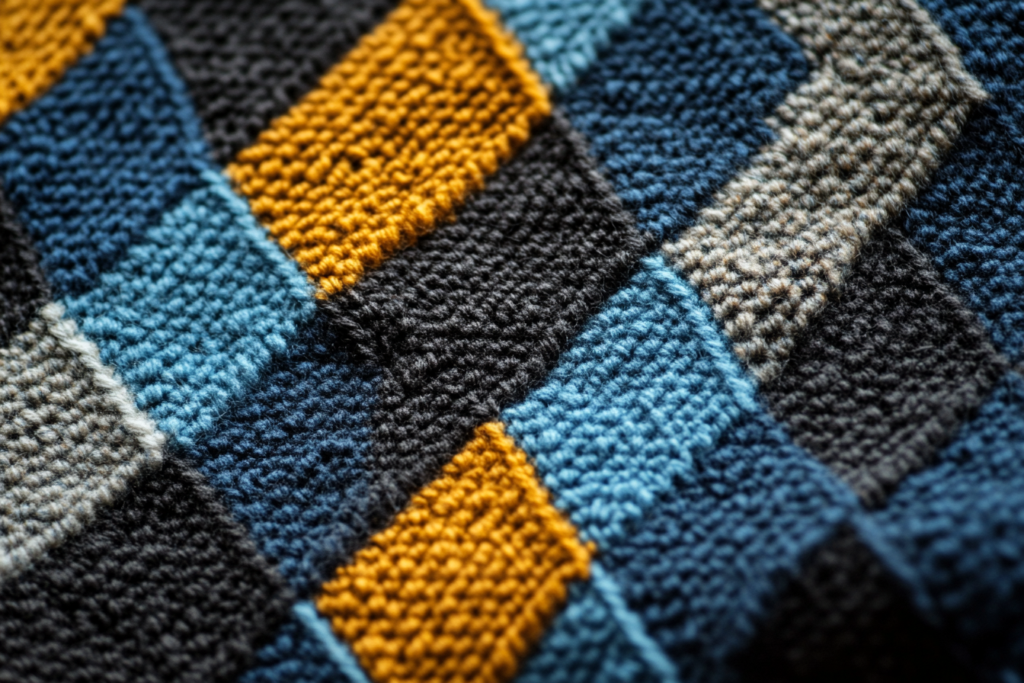Godet: The Triangular Fabric Insert for Added Movement and Fullness
Meta Description: A godet is a triangular piece of fabric inserted into a skirt or dress to add fullness, enhance movement, and create a flowing silhouette.
What is a Godet in Fashion?
A godet is a triangular fabric insert that is sewn into a skirt, dress, or even pants to add fullness, flare, and ease of movement. This design element is often used to create a flowing, voluminous silhouette, making garments appear more dynamic and elegant.
Godets are particularly common in gowns, A-line skirts, and mermaid dresses, as they add movement and drama to the hemline. By widening the lower portion of the garment, godets help create a soft, graceful flare, making them ideal for both casual and formal wear.
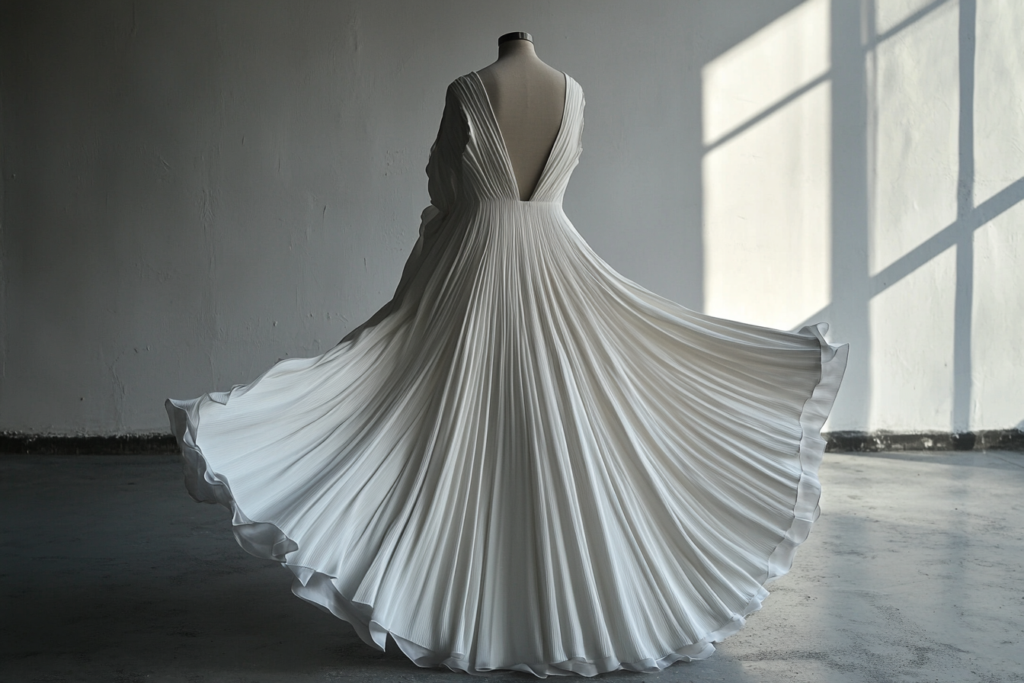
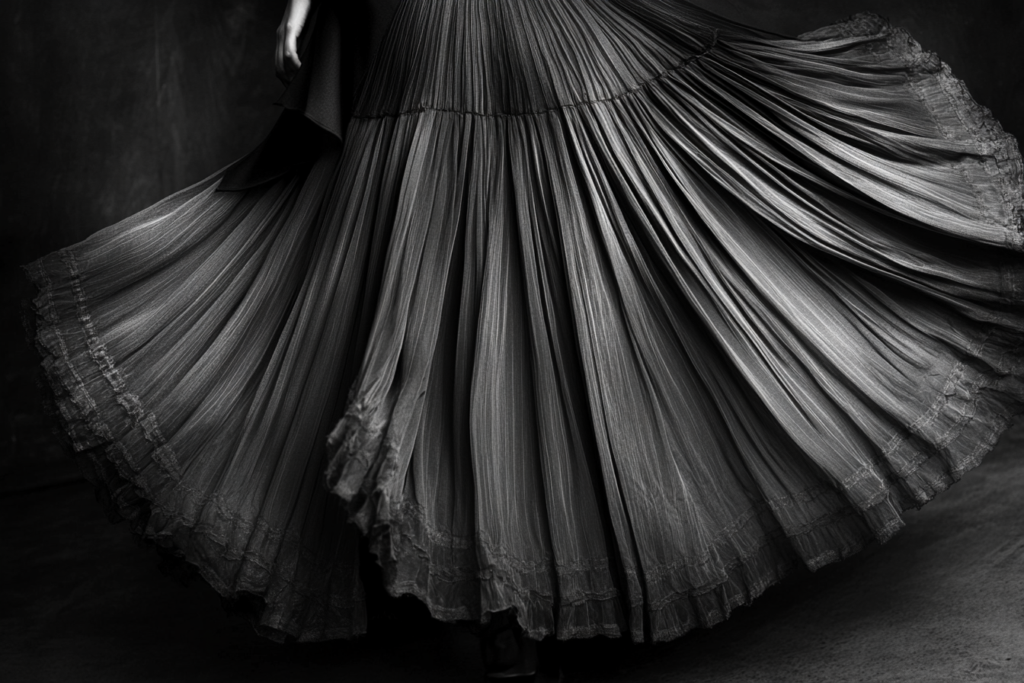
The Purpose of Godets in Clothing
Godets serve both functional and aesthetic purposes:
1. Enhances Movement
- Godets allow easier movement in fitted garments by loosening the hem, making them particularly useful in mermaid gowns, fishtail skirts, and long evening dresses.
- They prevent restricted motion, making skirts and dresses more comfortable to walk in.
2. Adds Fullness and Volume
- When inserted into skirts or dresses, godets create a fuller, flared silhouette, adding an element of fluidity and softness to the garment.
- This design is often used in gowns, flamenco dresses, and ballroom attire to enhance drama and elegance.
3. Decorative Appeal
- Godets can be made from the same fabric as the rest of the garment or from contrasting materials (e.g., lace, sheer fabrics, or satin) to create a decorative effect.
- Some designers add embellished godets, such as pleated, beaded, or printed fabric, to create a statement look.
4. Improves Fit and Comfort
- In tailored garments, godets help maintain structure while allowing more freedom of movement, preventing a garment from feeling too tight around the legs.
- This is especially useful in narrow skirts, as it helps maintain a sleek fit at the waist while adding extra room at the hem.
Where are Godets Used in Garments?
Godets are most commonly found in:
- Dresses & Gowns – Particularly in mermaid-style gowns, A-line dresses, and evening wear, where godets add movement and elegance.
- Skirts – Used in flared skirts, fishtail skirts, and maxi skirts to create fullness and flow.
- Pants & Culottes – Some wide-leg pants and culottes feature godet inserts for an extra flare at the hem.
- Jackets & Coats – Occasionally added to the back of coats to create a structured yet flowing silhouette.
Types of Godets
Godets can vary in size, shape, and placement depending on the desired design effect:
- Inset Godet – A standard godet inserted into a seam to create volume at the hem.
- Contrasting Godet – A godet made from a different fabric or color for a bold, decorative effect.
- Pleated Godet – A godet made from pleated fabric, adding texture and additional volume.
- Tapered Godet – A godet that starts wider at the hem but narrows toward the waist for a subtle flare.
Godet vs. Gore: What’s the Difference?
While both godets and gores are used to add fullness to garments, they serve different construction purposes:
| Feature | Godet | Gore |
|---|---|---|
| Shape | Triangular insert | Panel that extends from waist to hem |
| Placement | Inserted into an existing seam | Part of the garment’s structure |
| Function | Adds fullness at the hem | Creates an overall flared shape |
| Example Use | A-line skirt with inserts | Panel dress or flared skirt |
Essentially, a godet is added to an already made garment, while a gore is an integral part of the garment’s pattern structure.
How to Sew a Godet
Sewing a godet requires precision to ensure a smooth, clean insert. Here’s how it’s typically done:
1. Mark the Insertion Point
- Identify where the godet will be placed, usually in a seam or a slit of the garment.
2. Cut the Godet Shape
- Cut a triangular piece of fabric that matches or contrasts with the garment.
- Ensure the grain of the fabric is aligned correctly to allow for fluid movement.
3. Prepare the Seam
- If the godet is being inserted into an existing seam, carefully open the seam to create space for the godet.
- If adding a godet to a slit, cut a clean, precise opening in the fabric.
4. Attach the Godet
- Align the godet’s edges with the slit or seam.
- Pin and sew carefully, ensuring a smooth transition between the garment and the godet.
5. Finish the Edges
- Press the seams and finish raw edges with serging or binding to prevent fraying.
Godets in Fashion Trends
Godets have been a fashion staple in both vintage and modern designs:
- 1920s Flapper Dresses – Godets were commonly used in drop-waist dresses to create fluid, swing-like movement.
- 1950s Full Skirts – Many A-line skirts featured godet panels for added volume.
- Contemporary Bridal Gowns – Many mermaid and fishtail gowns use godets for a dramatic, flared hem.
- Modern Casualwear – Some bohemian maxi skirts incorporate godet inserts for extra movement.
Conclusion: Why Use Godets?
Godets are a timeless design element that enhance movement, volume, and style in garments. Whether you’re looking for a sleek mermaid silhouette or a flowing, vintage-inspired skirt, godets provide an elegant way to add fullness while maintaining a flattering fit.
From high-fashion couture to casual skirts, godets continue to be a go-to technique for designers seeking to blend functionality with beauty.
